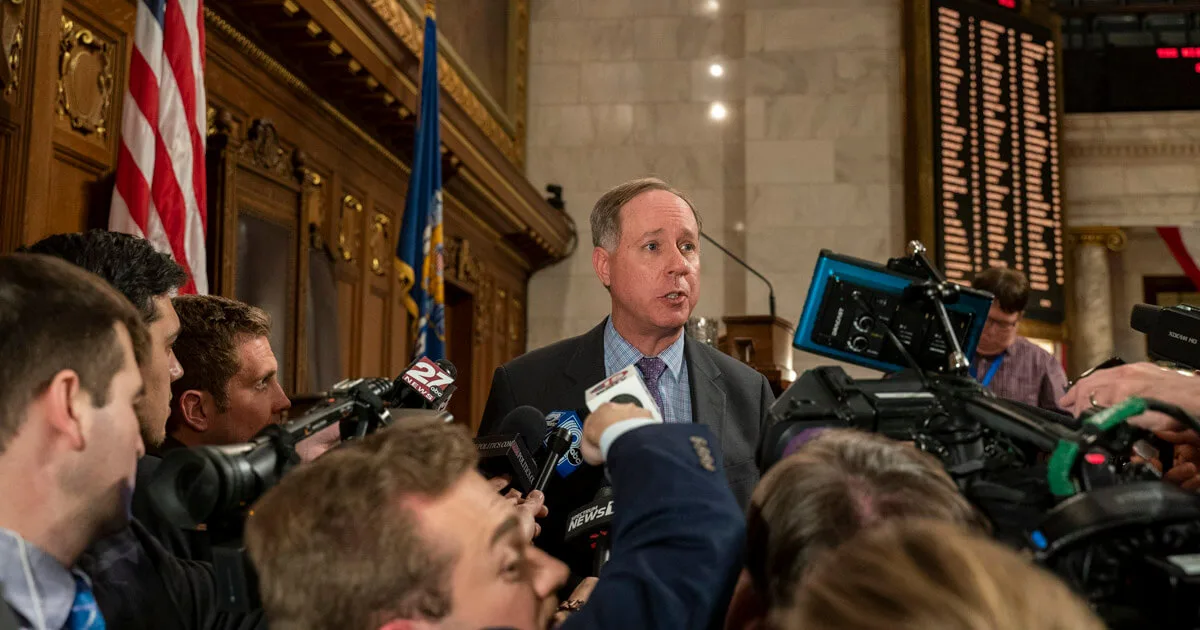
#image_title
Elections Commission also begins updating registration records in routine maintenance that could drop thousands of inactive voters.
A judge on Thursday voided a contract between Republican legislators and the private, taxpayer-funded lawyers they had contracted with for future litigation over new congressional and legislative maps that haven’t been drawn yet.
The redistricting process involves lawmakers redrawing Wisconsin’s political boundaries based on newly released census data. Ten years ago, Republicans who controlled the Legislature easily won the approval of then-Gov. Scott Walker for their maps. Democratic Gov. Tony Evers is almost certain to veto maps that are similarly drawn to give Republicans a disproportionate share of elected seats, a process known as gerrymandering.
Republicans’ 2011 gerrymander is widely considered to be one of the most effective ever seen, resulting in an overwhelming Republican majority in the state Assembly and Senate that has gone unbroken for a decade, even in years when Democratic candidates overperform and win statewide races.
In anticipation of a legal battle over the maps, legislative Republicans contracted attorneys Adam Mortara, who worked with Wisconsin Republicans during the last round of redistricting, and Consovoy McCarthy, who represented former President Donald Trump in a case on the release of his financial records and whose colleagues represented the Republican National Committee and the state Republican Party in litigation over last fall’s election results.
The Milwaukee Journal Sentinel reported the contract, signed months ago, committed to spending $1 million or more in public funds to defend likely legal challenges to whatever Republicans created. Monthly payments of $30,000 started in January and were set to jump to $200,000 a month in July or whenever a lawsuit is filed.
EARLIER: Election Day Was Only the Start: The Fair Maps Fight Is Heating Up in Wisconsin
Dane County Circuit Judge Stephen Ehlk ruled that Assembly Speaker Robin Vos (R-Rochester) and Senate Majority Leader Devin LaMahieu (R-Oostburg) did not have the power and canceled their contracts with the firms.
Sachin Chheda, director of the Wisconsin Fair Elections Project, reacted positively to the news: “We all know that Robin Vos and his allies will literally stop at nothing to try to rig the maps for another decade, but it’s good that in this case at least, they are being forced to adhere to the law.”
“All of this could be avoided if the Legislature would simply commit to an open, honest, transparent process to draw the next decade’s maps, as envisioned through the People’s Maps Commission process,” Chheda added, referring to the nonpartisan citizen commission formed by Evers to draw nonpartisan maps.
The People’s Maps Commission held hearings in all eight of the state’s congressional districts and is now crafting maps that Evers will inevitably hold up against Republican-drawn maps during court proceedings.
A February 2020 Marquette Law School poll found 70% of state residents support a nonpartisan citizen redistricting commission to draw new maps. Fair maps have also enjoyed high levels of support from individual counties; 56 of Wisconsin’s 72 counties have endorsed a nonpartisan redistricting process through both resolutions passed by county boards and nonbinding referendums passed by residents, according to a tally by the Wisconsin Democracy Campaign.
But Republicans claim it would be unconstitutional to allow a citizen commission to draw maps.
Elections Commission Begins Deregistering Inactive Voters
Also on Thursday, the Wisconsin Elections Commission voted to begin a process that could lead to deregistering as many as 188,000 voters who have not cast a ballot in four years, as part of routine voter roll maintenance.
State law requires the commission to update voter rolls following any general election. The commission mails notices to anyone who hasn’t voted within four years. Recipients have 30 days to respond, or else their voter registration will be deactivated. Commission members voted unanimously to begin this year’s update.
Notices will be sent by June 15, and the voter rolls will be updated by July 31. A total of 187,754 voters are set to receive notices, though it’s unlikely all will be delisted because as many as 14.1% of recipients have responded in past years, according to a memo from Elections Commission Administrator Meagan Wolfe.
In the six previous registration updates since 2009, anywhere from 98,000 to 381,000 voters have received deactivation notices, putting this year’s number below the average of about 240,000.
These notices are unrelated to the previous attempt by a right-wing legal group to purge almost 70,000 voters from the state’s voter rolls. Earlier this month, the state Supreme Court shot down the effort, which was based on a list of potential movers according to a multi-state database, the Electronic Registration Information Center (ERIC). It was discovered ERIC had wrongly flagged thousands of people as having moved.

Opinion: Many to thank in fair maps victory for Wisconsinites
On February 19, 2024, Governor Tony Evers signed into law new and fair state legislative maps, bringing hope for an end to over a decade of...

Opinion: Empowering educators: A call for negotiation rights in Wisconsin
This week marks “Public Schools Week,” highlighting the dedication of teachers, paras, custodians, secretaries and others who collaborate with...

Op-ed: Trump’s journey from hosting The Apprentice to being the biggest loser
Leading up to the 2016 election, Donald Trump crafted an image of himself as a successful businessman and a winner. But in reality, Trump has a long...

Not just abortion: IVF ruling next phase in the right’s war on reproductive freedom
Nearly two years after the US Supreme Court overturned Roe v. Wade, another court is using that ruling to go after one of the anti-abortion right’s...




